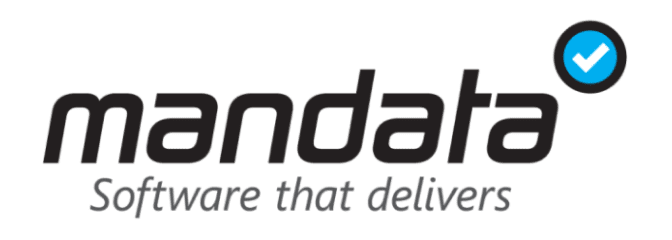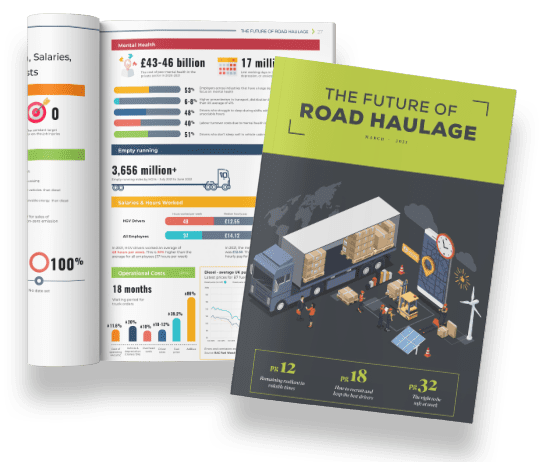RHA 2024 UK Manifesto for the Haulage Industry
The Road Haulage Association (RHA) recently released its 2024 UK manifesto, ‘Driving Growth, delivering for the country’. With a membership exceeding 8,500, representing around 250,000 HGVs, the RHA advocates for the haulage community’s interests in engagements with government bodies. The manifesto highlights key themes and recommendations for positive change in the haulage industry.
Key themes from the 2024 manifesto
The transport and haulage industry had a tough 2023. Whilst struggling through a cost-of-living crisis, with unprecedented fuel cost rises (second highest on record), most haulage operators coming away with a minimal 2% business margin. With the haulage industry already extremely competitive, these tight margins have proved too much for many.

What the RHA has identified as key themes that need addressing
Tackling Costs and Navigating Regulations
The cost-of-living crisis and higher operational expenses for haulage operators have contributed towards food and goods prices to increase. A 10% rise in running costs, coupled with a simultaneous 10% decline in freight volume, has no doubt had an influence on the record-breaking collapse of 450 haulage operators in the past year, underscoring the industry’s financial challenges.
The heavily regulated national road freight industry is also witnessing operators grappling with compliance measures, leading to financial hardships and ultimately some business closures.
The RHA recommends
- Freezing taxes, including fuel duty, HGV levies, and various business taxes, alleviate some of the financial burden.
- The introduction of incentives such as rebates to encourage the use of carbon-reduced fuels, supports the industry’s transition towards Net-Zero.
- A comprehensive review of transport regulations is proposed to modernise and ensure fairness for operators and their drivers.
How could Transport Management Software help businesses with these issues?
Using industry tech, operators are able to collaborate with other operators through pallet networks, freight exchange platforms, and job sharing among similar Transport Management System (TMS) users such as Mandata. By using a TMS, planners can identify dead miles, and subsequently reduce empty running across the fleet, whilst also monitoring compliance metrics, helping to save operational costs.

On the Road to Sustainable Road Haulage
The RHA reaffirms that it unequivocally supports the Net Zero campaign – citing that an estimated 20% of CO2 emissions by UK domestic transport each year. They do stress however that a quick turnaround for operators to go Net Zero, and with only 1% of the over 600,000 HGVs registered in the UK currently running on zero-emission fuel types, hauliers are anticipating a massive financial outlay.
With the industry already struggling financially, the RHA has estimated that the overall costs for operators to move from diesel trucks to electric ones would cost a collective £100 billion-plus.
The RHA recommends
- A review of the policies and roadmap to give operators a clear picture of the timeline for the decarbonisation transition.
- Greater guidance to be given on how the government will support operators, especially with investment incentives.
- Further financial assistance, especially for SMEs, regarding the purchase and running costs of new low-carbon and electric vehicles, to facilitate the switch in accordance with given timelines.
How could Transport Management Systems help businesses with these issues?
Whilst transport management software can’t change the fuel volumes used in vehicles, it can certainly help improve a business’s carbon footprint, if used the right way. TMS platforms can help hauliers to identify, and then reduce empty running (or dead miles), to not only reduce emissions but also save running costs for the haulier.
Systems like a TMS can help users make the most informed business decisions, including those directly impacting emissions. Planners can see the estimated CO2 carbon emissions per job in the planning stage, helping operators to identify which jobs are contributing the most towards their emissions, and helping to drive business decisions on how to reduce this.

Bridging the skills gap
The UK is facing a critical shortage of drivers, exacerbated by the fact that only 20% of Heavy Goods Vehicle (HGV) drivers are under 36 years old. This poses a serious threat to the industry, with an ageing workforce and potential strain on the profession. The reduction in overall freight movements has masked this issue, but any economic growth could significantly damage supply chains.
Additionally, shortages of technicians and warehouse operators are being investigated, raising concerns about vehicle maintenance and road safety. The upcoming changes to the driver CPC training are a good step in the right direction for HGV drivers, but more needs to be offered.
The RHA recommends
- Creating greater flexibility for the training of roles such as technicians and warehouse operators.
- A greater focus on apprenticeship funding, as rising training program costs may have contributed to the drop in employment in these careers.
- Encourage schools and colleges to provide clear guidance as well as encouragement for career paths within transport.
How can Transport Management Software help
A robust TMS encompasses most of the work within the transport office, including communication between colleagues. To supplement and improve the knowledge base of the existing workforce, TMS platforms, such as Mandata, provide features that can include training and compliance-related communication, which may help subsidise some of the knowledge gaps until the recruitment issues have been resolved.
It could also be said that users of technology such as a TMS, are more attractive candidates for recruitment, as businesses looking to employ new transport planners and warehouse operators with good knowledge, experience, and training of these platforms, allowing for potentially quicker and smoother transitions into new roles.
Securing a UK-wide, safe, secure and reliable road network
Poor quality rest stops and amenities for drivers in the UK have been a longstanding concern for the RHA. They advocate for increased and fair investment to enhance these facilities due to their subpar quality and significant security risks. Due to this safety risk has detracted many from joining the industry, especially women looking to join the industry, who make up only 1% of HGV drivers in the UK. Action needs to be taken to improve inclusivity and diversity across the industry.
The urgency of the situation is underscored by a significant increase of 1000 crimes on HGVs last year, totalling over 5000 incidents.
The RHA recommends
- Significant investment in the Strategic Road Network (SRN) to reduce bottlenecks and congestion, ensuring reliable haulier journeys.
- Reform the Nationally Significant Infrastructure Projects (NSIP) to expedite highway schemes and junction improvements and revamp The National Planning Policy Framework to emphasise the economic importance of truck parking, reducing refusals for new sites.
- Future infrastructure projects must assess the need for lorry parking, considering repurposing options post-construction.
Summary
Overall, the RHA has raised numerous essential points and recommendations on how the issues that have clouded the industry over the last few years could be avoided through government intervention and collaboration across the industry.

